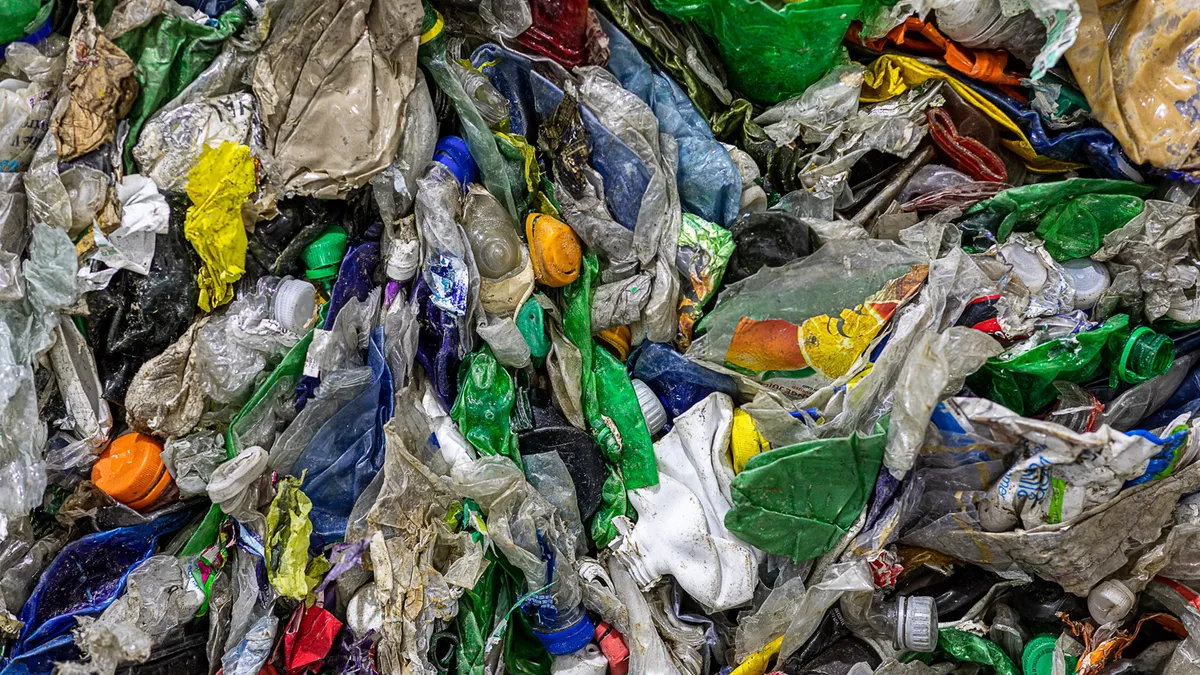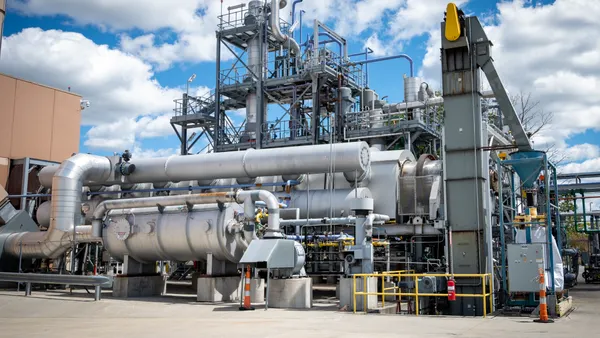Dive Brief:
- Chemical recycling startup company Resynergi has raised $18 million in series B extension funding in an effort to commission its first commercial-scale site.
- Investment company Taranis led the funding round, along with venture capital firm Transitions First, as well as Lummus Technology, which licenses proprietary technologies for processing polymers and fuels. Resynergi previously raised $6.4 million in series B funding, co-led by Transitions First and Lummus.
- Resynergi uses what it describes as a proprietary “continuous microwave assisted” pyrolysis technology to convert plastic waste into pyrolysis oil for use in making new plastics or fuel. It envisions building small, modular processing facilities co-located with MRFs, which it says cuts down on transportation and processing costs.
Dive Insight:
Resynergi joins other chemical recycling companies in announcing new investments. While some companies seek to build their projects in locations already friendly to chemical recycling business, such as Texas or parts of the Midwest, Resynergi has its sights set on operating its first commercial site in California, a state not known for major chemical recycling activity.
Resynergi’s built its pilot plant Santa Rosa, California, and it plans to build its commercial demonstration plant in Rohnert Park, said CEO Brian Bauer.
“California is the hardest place to actually get permitted,” due to the state’s rigorous standards for emissions, transportation and other business aspects, Bauer said. “If we can do it in California, we can do it anywhere. We also think there's a fantastic opportunity in California, which already has a really great mindset for recycling.”
Resynergi’s modular plant structure, designed to be built on a smaller footprint than a typical chemical recycling facility, aims to decentralize the process of collecting and processing plastic waste, he said. Each module is designed to process between 20 and 40 tons of plastic waste per day using a microwave reactor, he said. Such plants will take less time to build than traditional chemical recycling plants, he said, and can process plastic faster.
“Most people aim to do centralized plants, largely because a lot of refineries looked at doing this first,” he said. “Instead of bringing as much plastic to one location as possible and getting efficiencies that way, we want to reverse it.”
The recent funding announcement will help Resynergi scale up its operations by adding another reactor and beginning to run the plant for longer in order to prove its reliability, he said. The company will partner with Lummus to help ramp up the process in the later part of the year, he said.
As part of the new investment deal, Katherine Corrigan of Taranis Carbon Ventures will join the Resynergi board of directors, according to a news release. Ilya Aranovich, Lummus Technology’s vice president of corporate strategy, and Marianne Abib-Pech, managing partner at Transitions First, are also on the company's board of directors.
Chemical recycling, also known as molecular or advanced recycling, involves a range of numerous processing technologies that break down recovered plastics to the molecular level to become “building blocks” for new plastics or other products. Such technologies have seen both major investments and controversy in recent years.
Some plastics and packaging companies say the technologies provide recycling opportunities for more kinds of hard-to-recycle plastics, such as flexible packaging, and provide potential business opportunities for MRFs and other recyclers.
But critics say such projects create pollution and don’t offer transparent data about how much plastic is processed or sent to disposal. Some environmentalists also argue that certain chemical recycling businesses tout their plastics recycling abilities but send much of their product to petrochemical companies to be used as fuel.
Bauer said some of Resynergi’s modular facilities could be built in isolated places like islands, where waste management options have cost constraints and fuel can be expensive to ship in from the mainland. However, “the drivers, both economically and from a life cycle analysis standpoint, for us as a company, are both very much to remake plastic,” he said.











